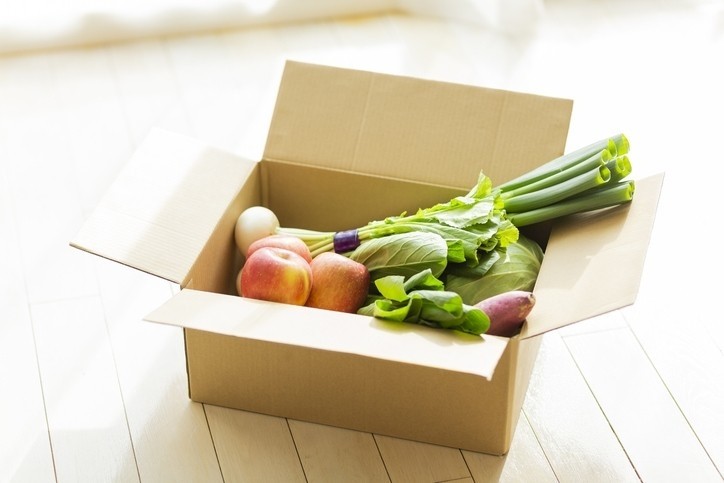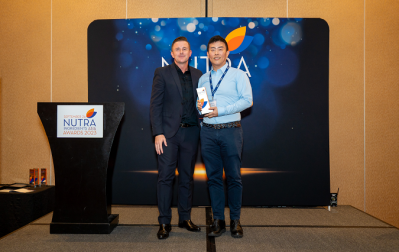E-commerce conversion: Singapore consumers’ purchasing decisions increasingly driven by health and sustainability - RedMart

RedMart is the grocery arm of Lazada, one of the largest e-commerce platforms in Asia, and this grocery arm has a particularly strong foothold in Singapore where it has established its own in-house delivery fleet as well as a dedicated fulfilment centre to ensure smooth logistics.
E-commerce as a whole saw a major boom in demand during the COVID-19 pandemic – but this also brought with it increased sustainability concerns due to the added packaging needed for logistical purposes.
Speaking to FoodNavigator-Asia after a closed tour of the fulfilment centre and introduction to the firm’s wide range of private label products, Lazada Singapore's Head of RedMart and Grocery Damien Schricke emphasised that local consumers are increasingly demanding that sustainability be part of their e-commerce packaging and logistics.
“This is becoming more and more important to consumers here when it comes to making purchasing decisions via online platforms, and we are seeing it reflected in purchasing decisions as well as demands, hence have implemented many initiatives to respond,” he told us.
“There are pretty much three main categories that have been of concern - the first is the packaging of the product itself, the second is the totes used to bring in products from suppliers to the warehouse, and the third is the cartons that are sent to the consumers.
“A lot of work is in progress for all of these – for instance, we have 100% recyclable plastic bottles for our mineral water, we have shifted to use paper instead of plastic to package our fruits, we send reusable totes to our suppliers to send their products in to us then reuse these totes after, and we have made the cartons going to consumers reusable by returning to the delivery person and recyclable if not possible to reuse, in order to reduce wastage overall.
“RedMart also uses ambient delivery trucks only in order to reduce cold chain, and how we do this is to package the fresh or frozen products needing temperature control in a controlled warehouse, then packing these into reusable totes lined with dry ice or reusable iced packs according to the temperature needed in order to maintain that temperature.”
That said, some aspects of the packing process do still require the use of plastic such as wrapping up large pallets with cling film to secure these for transport on and off the delivery vehicle.
“There are of course some areas like this as we have to make sure we do not spill or mix up the orders, or have products mixing with fresh products like meat or seafood – it’s still a priority to protect the food,” he added.
“The many initiatives we have taken are really a huge stepping stone, and we are first reducing the plastic used for the products as well as packaging thickness where we can, but are always developing new ways to improve on delivering these improvements.”
Schricke also highlighted that RedMart has seen the health and wellness trend impact e-commerce purchasing in a big way locally, maintaining in strength even post-pandemic.
“Beverages has always been where RedMart has a core advantage as we can deliver bulky, heavy items to maximise user convenience, but in recent years especially we are seeing healthier products really take off in this category,” he said.
“All drinks that have some sort of healthier connotation such as sugar-free or less-sugar are seeing more consumer purchases – essentially, healthier means higher consumer conversion.
“And the trend is not limited to beverages, but across the board for food and beverages as well, from free-from items to organic items and more - it has inspired RedMart to develop healthier products such as nitrite-free cold cuts and probiotic-rich beverages within our private label range.”
RedMart currently has over 500 products within its private label product portfolio, including seasonal items such as house brand mooncakes and house brand alcoholic beverages.
RedMart for Businesses
RedMart also launched its RedMart for Business programme earlier this year to serve clients across various industries, particularly targeting food and beverage businesses as well as various office pantries with this programme.
“This programme relies on our strength in terms of warehouse, product assortment of over 100,000 products and our well-developed delivery network,” Schricke said.
“The latter especially allows us to help firms reach small businesses easily where it might be more costly using other ways, so this is a lot of added value for them – for example we can deliver an order of meat, fish, vegetables and more in one order under one invoice to, say, a small restaurant or a company canteen needing this , saving cost, time and the paperwork of dealing with multiple invoices.”
All companies that are part of this programme need to be whitelisted and receive RedMart confirmation as an authentic corporate entity before being allowed access.











